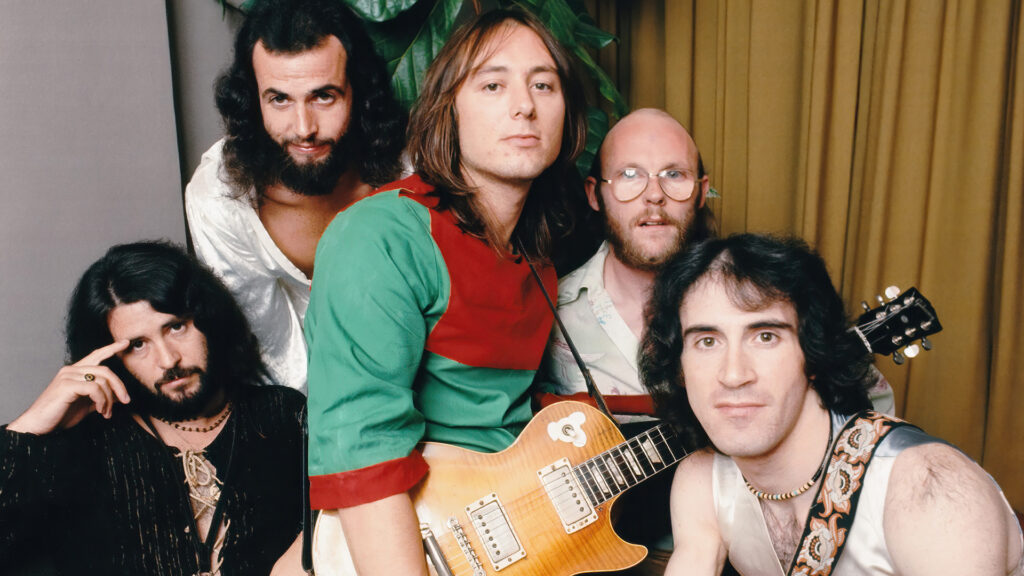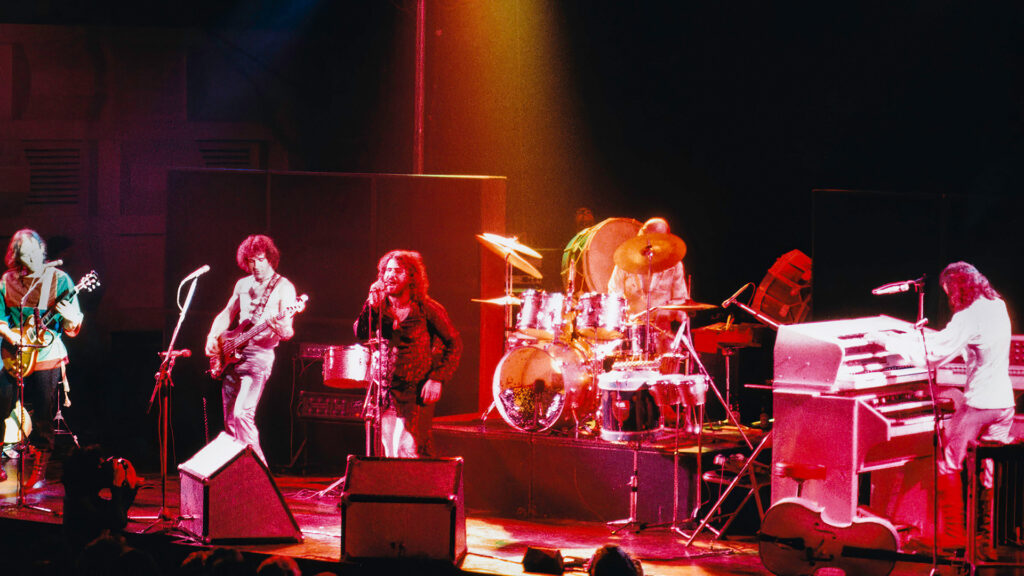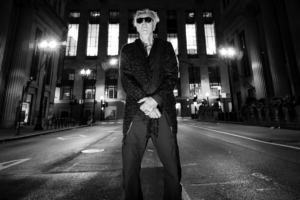Gentle Giant – Discussing The Interview Album Re-issue

Interview with John Weathers
1. How did the concept of satirizing the music industry and the band’s relationship with the rock press come about for the album “Interview”?
I think the whole thing was triggered by the rise in popularity of the band. It got to a point where when we would get to cities where the band was attracting lots of interest the area record company salesman would have arranged numerous press, radio and in-store interviews, these normally took place during the afternoon of the concert and quite often we had to split up into two groups to cover them all. Press interviews were normally done at the hotel so there would be a queue of local newspaper and magazine writers all waiting for an interview. I suppose it was inevitable really but most of the time they asked exactly the same set of questions and although we understood that this was absolutely necessary for promotional purposes we still found it very tedious, so much so that it became a real chore, we’d rather have been hanging out by the swimming pool.
2. What inspired Gentle Giant to continue the stylistic direction of their previous album, “Free Hand,” in “Interview”?
After the success of the “Free Hand” album and tour it seemed that the musical approach that the band were taking at that time seemed to be the right formula so naturally Ray, Kerry and Derek saw no reason to fundamentally change it. Though I think that Kerry’s piece “Design” was a real step into the unknown and very brave, in my opinion it’s one of his best works, I mean you can’t call it a song can you?
3. Can you discuss the significance of having ‘Sounds’ writer Phil Sutcliffe participate as the ‘interviewer’ on the album? How did that collaboration come to be?
Phil was a great champion of the band’s music right from the early days at a time when most English music journalists were being quite critical of the experimental nature of us, we were even called a bunch of musical renegades at one point. So naturally when we decided to devote an album as a tongue in cheek critique of the industry he was the obvious choice and readily agreed to take part.
4.How did the band’s non-stop touring and lack of reflection time after the success of “Free Hand” influence the direction and attitude of “Interview”?
I think that I’ve answered that above. “Interview” was a natural continuation of what we were doing and the fact that it was conceived in such a short period of time shows that the writers felt comfortable to be writing material in the same vein as the previous album, but I think there are lots of subtle changes in the direction that are not that apparent and that it’s more of a progression.

5.Could you tell us about the decision to record the album in Advision Studios and the significance of having both stereo and quadraphonic sound mixes for “Interview”?
Advision had become like home to us and the studio was technically one of the best in the country. The studio management made sure that every new recording innovation was installed as soon as it became available. Some memorable ones were tape machine remote control and varispeed, ADT and Compumix where one track of the tape recorded all the information regarding the master mix so that any changes could be made very easily. At the time we were recording “Interview” the very latest innovation was quadraphonic and it was only natural that we would take full advantage of it although there were only a handful of people in the country that had the equipment to be able to play it, but we thought we’d do it anyway.
6. In what ways does the album poke fun at the state of the music industry? How does it dissect the relationship between a group and the rock press?
It’s really only the opening track that pokes fun at the music press in that the lyrics answer the most common questions posed and poses some of the most common questions asked. As far as dissecting the relationship I don’t believe that it attempts to do that, it’s not meant to be that serious, just a bit of fun.
7. Can you elaborate on the eclectic and versatile nature of the album, highlighting specific tracks that showcase Gentle Giant’s range?
I think that this album is particularly diverse in that it contains a very different mix of styles from straight rock to reggae to smooth jazz with a sprinkling of experimental classical thrown in for good measure. Both “Interview” and “Another Show” I would class as straight rock, “Give it Back” obviously is reggae influenced, “Empty City” has for me a smooth kind of jazzy feel and “Design” is as I have said earlier is in my opinion a modern classical composition. In addition to that you get “I Lost my Head” which morphs from baroque to heavy rock. I think we covered quite a lot of genres altogether.
8. How did Steven Wilson’s involvement in remixing “Interview” come about? What aspects of his work make the album sound fresh and relevant today?
Steven has already remixed all the previous albums where the master tapes are still available and the transformation has been remarkable. He has always been very true to the original concept and just used his immense musical talent and the modern technology available to enhance what already existed, he has great “ears” and what is more important a love of the music.
9. What can fans expect from the 2023 remixes in terms of the sonic experience and the enhancement of the original recordings?
Steven has managed to enhance the sound of many of the little nuances which are easily missed on previous re-masters as well as putting a little more “beef” into the drums and bass without detracting from rest of the voices and instruments.
10. Could you explain the inclusion of the original 1976 stereo mix and quad mix in the CD/Blu-ray version? How does it contribute to the overall appreciation of the album?
The inclusion of all the previous mixes gives the purchaser the opportunity to compare for themselves how time, technology and a fresh pair of ears and approach can change the listening experience of the album, and people seem to like the opportunity to able to do it.
11.What was the thought process behind creating custom visuals for each track on the CD/Blu-ray version? How do they complement the music?
The visuals were the brainchild of Noah Shulman, Derek’s son who is a filmmaker by profession. He first started doing them quite a few years ago and they were so popular with the fans that it’s now become normal for him to incorporate some of his work alongside his father’s, it’s the personal connection that makes it so complimentary.
12.Looking back, how do you perceive the impact of “Interview” on Gentle Giant’s discography and the progressive rock genre as a whole?
Speaking honestly I would agree with the fans that maintain that “Interview” was the last “real” Gentle Giant album. By “real” I mean that it was the last album made without having to compromise musically in order to keep the record companies happy because by that time the progressive side of music was starting to become less popular, certainly in the record companies eyes, due to the rise of punk and new wave. Let us not forget that the major record companies are only there to sell records, the quality of the music on the record means nothing to them, if you’re selling records they fawn all over you but the moment sales don’t match their expectations they want to know why and what you intend to do to improve the situation, it’s a cutthroat cold-blooded business. That is why the next album “The Missing Piece” was more of a compromise with one side of the album being “more accessible” than the other which was what you would generally expect to hear from the band. Times and tastes were changing fast and the vast majority of the bands of our genre were having to change too.
For more information: https://linktr.ee/gentlegiantband


